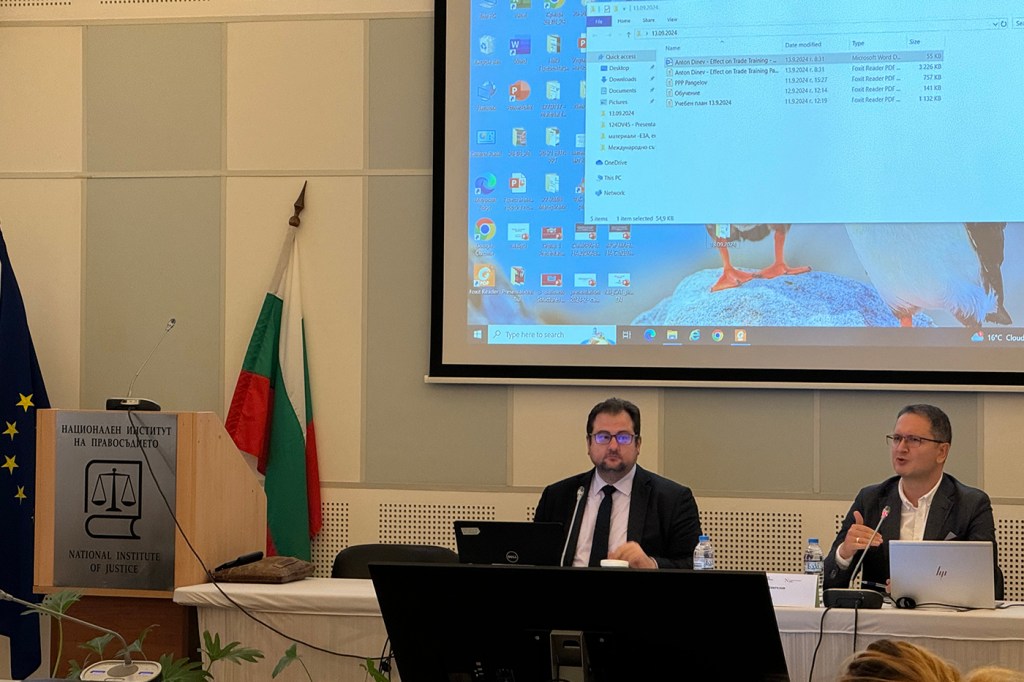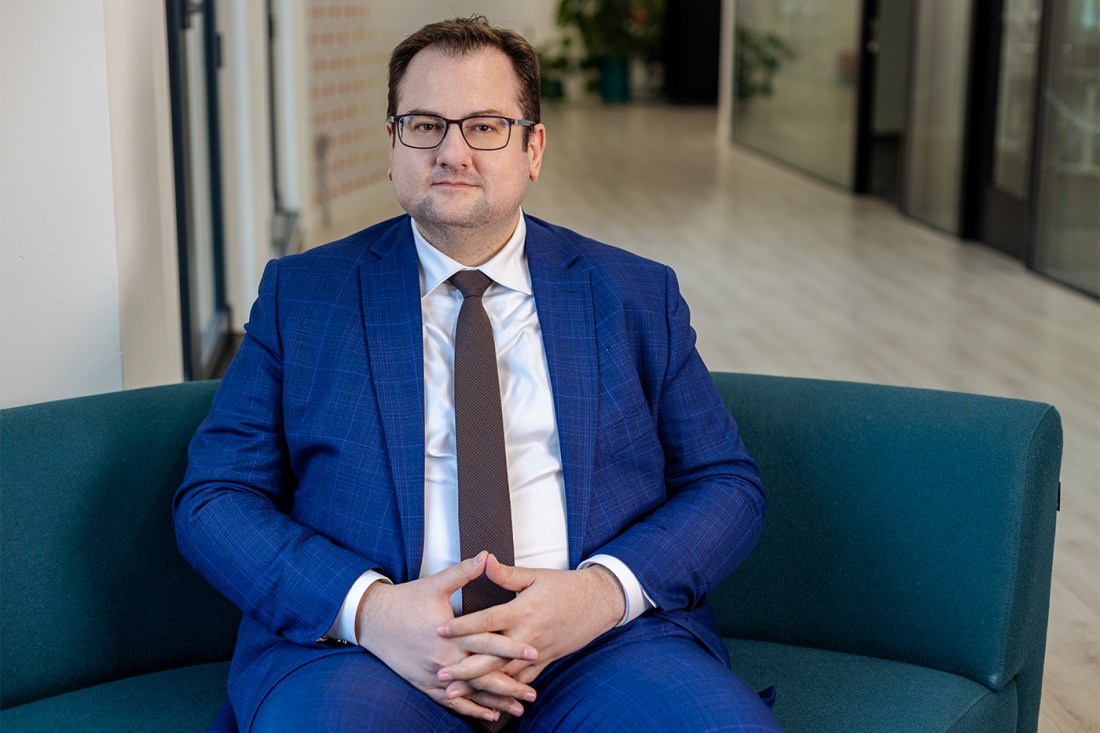Northeastern professor trains Bulgarian judges on European Union anti-monopolization and antitrust laws
Anton Dinev, an assistant professor in law, was in Sofia to deliver training to the country’s judiciary based on his competition law research that has been published in a 1,000-page book.

LONDON — A Northeastern University legal expert helped educate judges on how to best intervene in antitrust cases with international ramifications during a recent event in Sofia, Bulgaria’s capital.
Anton Dinev returned to his home country to deliver training based on his research into judicial reviews of competition enforcement decisions made by the Bulgarian Commission for Protection of Competition (CPC).
Competition authorities like the CPC are responsible for ensuring markets deliver for consumers and are responsible for taking action against businesses and individuals deemed to be taking part in cartels — when companies or others collude to manipulate a market to improve their profits — or other anti-competitive behavior.
Dinev said he used the session to urge members of the Eastern European nation’s judiciary to take a “fresh look” at whether the competition watchdog had been correct when asserting that European Union law did not need to be applied when reviewing claims of business foul play that had an effect on trade with the other 26 countries in the bloc.

The training came off the back of a chapter that Dinev co-authored for the new book, “Judicial Review of Competition Law Enforcement in the EU Member States and the U.K.” The 1,000-page volume is a first-of-its-kind comprehensive empirical study of judicial review of competition law public enforcements across Europe.
For their analysis of the situation in Bulgaria, Dinev and co-author Alexandr Svetlicinii, from the University of Macau, examined 395 judicial reviews of enforcement decisions made by the CPC between May 2004 — the moment when EU Regulation 1/2003, which covers the rules around the implementation of competition rules, entered into effect — and April 2021.
They found that an “asymmetrical approach” was being taken to the application of Brussels’ competition rules.
Dinev explained that, as per Regulation 1/2003, should an enforcement made by a national competition authority impact trade between EU member states, then there is an obligation to apply Brussels-made competition and antitrust laws, as found in Articles 101 and 102 of the Treaty on the Functioning of the European Union.
But the research Dinev was part of found that Articles 101 and 102 were “applied in very few cases” where the courts reviewed judgments by the CPC. “That is in sharp contrast to what you would see in jurisdictions in Western Europe,” said the London-based assistant professor in law.
Despite that, EU law was still used as a reference point elsewhere in the judicial process.
“The Bulgarian courts, when reviewing the legality of that competition enforcement decision, would refer time and again to EU law to assess whether or not the competition authority — which applies national competition law only — did a good job of applying national competition regulation. That’s the asymmetry which appeared clearly in our study.”
Dinev presented the findings at two events hosted by the European Commission — the executive arm of the EU — including at its Annual Research Conference in November, which led to the idea of putting on training for Bulgarian judges and competition enforcement officials.
The training, held in collaboration with the Bulgarian Competition Law Association, took place on Sept. 13 at the offices of the National Institute of Justice in Sofia. Among the 21 participants were circuit judges, presidents of regional courts and officials from the CPC.






